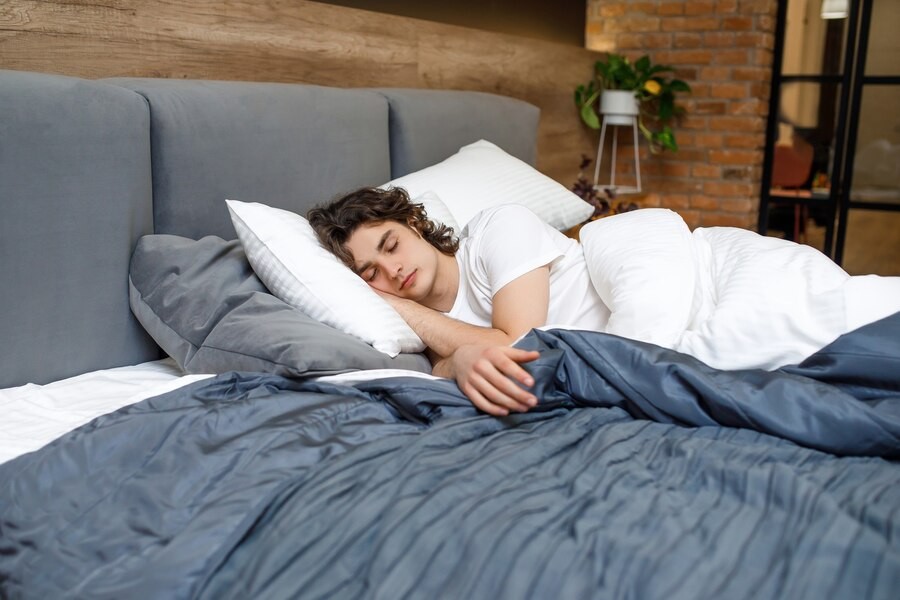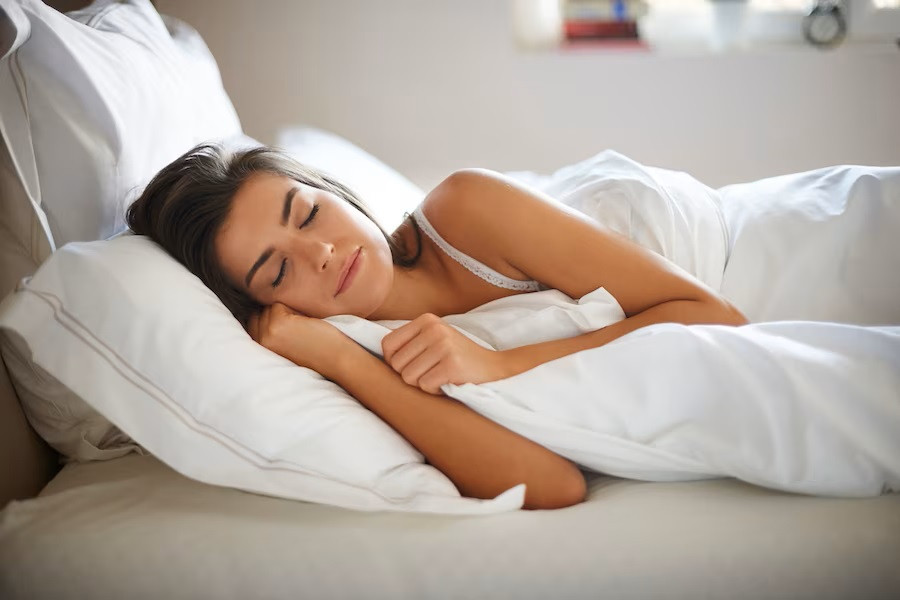Good sleep is crucial for maintaining overall health, including the health of your eyes. Getting enough rest helps keep your eyes moist, reduces the risk of dryness, and helps relieve muscle tension caused by activities like prolonged screen time.
To maintain optimal eye health, it is recommended to sleep in dark conditions or with minimal lighting. Sleeping with the lights on can disrupt your sleep quality and may affect the regeneration of eye cells.
The Effect of Light on the Sleep Cycle
Light plays an essential role in regulating your circadian rhythm, which controls the sleep-wake cycle based on light changes in your environment.
When night falls, light levels naturally decrease, signaling to your body to produce melatonin, a hormone that helps calm the nervous system and prepare you for sleep.
However, exposure to light at night—especially from sources like smartphones, computers, televisions, or bedroom lights—can interfere with this process. Blue light, in particular, has a wavelength that suppresses melatonin production more strongly, tricking your brain into thinking it's still daytime and keeping you awake longer.
Disruptions in your circadian rhythm and melatonin production can significantly affect sleep quality. Poor sleep means the body doesn't have enough time to rest and regenerate cells, including those in the eyes.
Impact of Sleeping with the Lights On on Eye Health
Light exposure while sleeping—especially from artificial sources—can have an impact on eye health. The retina, a sensitive layer of tissue at the back of the eye, is particularly vulnerable to light exposure.
Throughout the day, the retina works hard to process visual information. At night, in the absence of light, the retina and other eye cells are able to rest and regenerate, repairing any damage that may have occurred.
Sleeping with the lights on, particularly with blue light, can interfere with this important process. When your eyes should be resting, exposure to light forces them to stay active, which can lead to difficulty sleeping and slow down the regeneration of eye cells.
Additionally, light exposure during sleep can trigger oxidative stress, a condition where free radicals are produced and can damage eye cells. If the body is unable to neutralize the effects of these free radicals, the risk of eye issues increases. Over time, this can contribute to serious conditions like macular degeneration, retinopathy, and cataracts.
Tips for Improving Sleep Quality and Eye Health
To protect your eye health and enhance sleep quality, here are some helpful tips:
- Turn off the lights and sleep in a completely dark environment.
- If a nightlight is needed, choose one that emits a dim, non-blue light, such as yellow or red.
- Limit screen time before bed to reduce blue light exposure.
- Use dark curtains to block outside light from entering the room.
While there's no conclusive evidence that sleeping with the lights on will cause permanent damage to the eyes, the long-term risks are still concerning. Sleeping in a dark room helps support eye health and improves the quality of your sleep.
If you have any further questions about eye health or sleep issues, you can consult a doctor through the Ai Care app, available for download on the App Store or Play Store.
Want to learn more about other health concerns? Click here!
- dr Hanifa Rahma
Eric Suni (2023). What Happens When You Sleep?. Available from: https://www.sleepfoundation.org/how-sleep-works/what-happens-when-you-sleep
Eric Suni (2023). Light and Sleep. Available from: https://www.sleepfoundation.org/bedroom-environment/light-and-sleep
Ann Pietrangelo (2021). Does Red Light at Night Help or Hinder Your Sleep?. Available from: https://www.healthline.com/health/why-not-to-have-red-lights-on-at-night
Harvard Medical School (2024). Blue light has a dark side. Available from: https://www.health.harvard.edu/staying-healthy/blue-light-has-a-dark-side
CDC (2023). Effects of Light on Circadian Rhythms. Available from: https://archive.cdc.gov/www_cdc_gov/niosh/emres/longhourstraining/light.html












